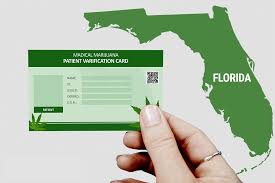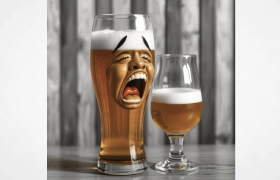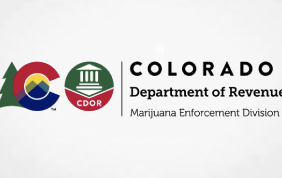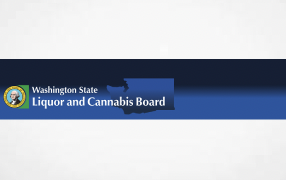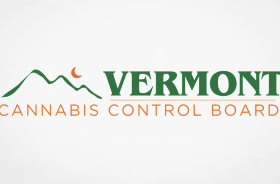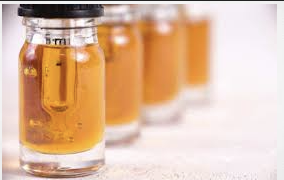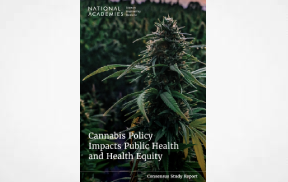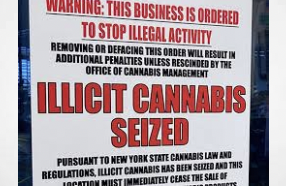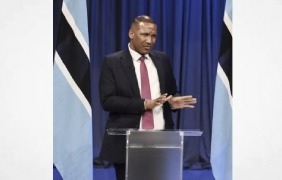While fast-tracking the smokable delivery route, Florida has been slow to make finalized rules to implement an edible delivery route registry change, so products currently remain unveiled.
However, finalized rules on the shape, size, color, warning, packaging, and display of Edibles are currently lingering in final formation.
According to the Department‘s own Fresh From Florida public statements:
“The Florida Department of Agriculture and Consumer Services (FDACS) is not currently taking applications for this permit. We will begin accepting applications for food permits for the manufacturing and production of medical marijuana edibles after the rules have been promulgated. However, there are steps you can take now to gather the required information below. This will speed up the process once permitting begins.
To Apply for Plan Review, Complete the Plan Review Application. After payment has been made, email your application and plans to [email protected].”
Although Florida has currently closed licensing application acceptance, Chaney continues accurately: “It remains to be determined whether or not regulators will allow stand-alone, specialized businesses for retailing, cultivation, delivery services, edibles or topicals.”
On the pressing question of using cannabis as medicine in the various delivery routes available to Florida patients, Dr. Moltke weighs in again at Get The Dose:
“Confused? We are discussing complicated biological processes here, but most important is to remember that cannabis works on an existing regulatory system in the body, by binding to the CB1 and CB2 receptors of the endocannabinoid system.”
On the horizon, Florida can see the reinforcements marching in as early as August 2019. According to a February article by Marcia Heroux Pounds in The South Florida Sun Sentinel: “Medical marijuana company Trulieve to bring their pot-infused edibles to Florida.”
Florida Medical Marijuana Edibles FAQ answers many of the questions that arise along the way to full licensing.
Florida’s currently updated Patients OMMU Registry provides more detailed information on medical marijuana. Please view their additional FAQs or email directly at [email protected].
Our country is a speeding endocannabinoid engine with a sluggish Florida cannabis caboose. All we can do is follow each respective state’s program guidelines and laws as found at NORML State Info.
The U.S. has Medical Cannabis innovation fever. Like the nation, Florida sits on the precipice of success in its comprehensive state medical marijuana model.
The newly-formed Medical Marijuana Advisory Committee must be asked to formulate supportive solutions in all aspects of the Florida’s vertical integration model. Otherwise, this state will not be moving forward fast enough, far enough.
In absence of another option, however, Florida must continually pass rules and make program changes. Like the recent addition of a smokable flower route, these changes occur far too often for dispensaries, or patients, or even physicians to keep up.
To recap the basics, who qualifies for medical marijuana in Florida?
As per the legislation of Florida’s Medical Marijuana Legalization Initiative, the passage of Amendment 2 on November 08, 2016 allows qualified patients diagnosed with a debilitating medical condition to lawfully obtain and use marijuana for medical purposes, after the patient has been certified by a licensed Florida marijuana doctor.
Additionally, patients are strictly prohibited from transferring medical cannabis to any other person, other than to the qualified patient for whom it was dispensed.
What is a recommendation, or “order,” why is it called a recommendation rather than a traditional prescription, and what is the difference?
While some medical marijuana patients will claim they have a doctor’s prescription for medical marijuana, marijuana prescriptions are in fact illegal. The federal government classifies marijuana as a Schedule I drug with no medicinal value.
Therefore, doctors are unable to prescribe marijuana to their patients, and medical marijuana patients cannot go to a pharmacy to fill a prescription for medical marijuana.
Instead, medical marijuana physicians will provide patients with a medical marijuana recommendation or “order,” in strict compliance with Florida state law.
To become a medical cannabis patient in Florida, a person must be a Florida Resident with a valid Florida I.D. as proof of residency. If person does not have a Florida I.D., then an out of state I.D., passport, or other photo I.D. with proof of state residency such as bank statement, utility bill, etc. is acceptable.
Patients, or their legal guardian, are required to provide the physician with written informed consent. Physicians are required to obtain the voluntary, written, informed consent from the patient for their legal guardian before entering an order for the patient into the medical marijuana use registry, according to the OMMU’s own “Know the Facts: Patients.“
Curious about minors and medical cannabis in Florida?
Minor patients must submit a certified copy of a birth certificate or a current record of registration from a Florida K-12 school, and a copy of the minor patient’s parent or legal guardian’s valid Florida driver’s license or identification card.
Regardless of a residency designation, all patients will be registered with the Medical Marijuana Use Registry by the ordering physician who MUST enter the patient’s recommendation for cannabis.
WeedMaps: Cannabis for Pediatric Children offers valuable insight into minors and regular therapeutic medical marijuana use.
Cannabis is remarkably effective in treating a myriad of pediatric health conditions in which traditional pharmaceutical medications have proven less safe and more addictive.
Many standard pharmaceutical treatments cause even more undesirable, unpredictable side effects which are worse than the original condition the patient endures.
Is Florida on your travel itinerary?
Under federal law, medical marijuana is still illegal. Currently, a Florida state registry ID card is only recognized in the State of Florida and there is no recognized reciprocity built into the state Medical Marijuana Use Registry & program.
For all individuals, “no reciprocity” means Florida does not recognize medical marijuana registry ID cards from other states, nor can a patient use another state’s medical marijuana ID card to purchase product in the state of Florida.
The Marijuana Travel Checklist by Melissa Sherrard is a handy guide for traveling with cannabis. Although published two years ago, this travel guide includes pertinent tips for traveling with cannabis in 2019:
“Whether you live in a cannabis-friendly state or you’re visiting one, there are some important things to remember when traveling with marijuana. As the laws surrounding cannabis change, they differ from state to state, and it’s important that you not get caught off-guard.
Review the laws about cannabis possession limits in the state in which you will be traveling with cannabis. In some states, the amount of marijuana a person is allowed to travel with on their person differs if they have it for medical or recreational purposes, so double-check before you throw your stash in the car.”
Are you a seasonal resident with an existing or planned temporary physical address in Florida?
If patient lives here for more than 31 days and has proof of a transient or temporary residence, patient can qualify for the state program even if you’re only a seasonal, or “snowbird” Florida resident if designated requirements are met.
Seasonal residents are individuals who reside in Florida for at least 31 consecutive days each calendar year and maintain a temporary residence in Florida with demonstration of eligibility by submission two of the following documents that show proof of a local residential address:
- A deed, mortgage, monthly mortgage statement, mortgage payment booklet, or residential rental or lease agreement
- A utility hook up for work order dated within 60 days before registration in the medical use registry
- A utility bill, not more than 2 months old
- Mail from a financial institution, including checking, savings, or investment account statements, not more than 2 months old
- Mail from a federal, state, county, or municipal government agency, not more than 2 months old
- Any other documentation that provides proof of residential address as determined by Department rule
In the military or military family and headed to the United States?
The military’s armed service members are integral to Florida’s population base throughout the state and a vital part of this conversation.
However, members of the armed services have quite a sticky wicket to maneuver concerning Federal and State medical marijuana law conflicts.
Tread carefully in this area and remember that the federal always trumps the state when it comes to laws and regulations about medical marijuana.
Military and armed service members are individuals who are stationed on active military duty in the state of Florida.
However, on all forms of Florida residency, the name and address on the documentation provided must exactly match the name and address provided in the medical marijuana application.
This catch means any active member of armed services must relinquish their home state driver’s license, state identification card, and/or vehicle registration to obtain a Florida residency via a Florida state-issued driver’s license or identification card.
It is imperative that all patients keep in mind the fact that cannabis consumption and possession remain federally illegal.
What about Florida’s heavy veteran population?
The Department of Veterans Affairs released “VA and Marijuana – What Veterans Need to Know” pointedly and plainly explains the presently applicable Access to VHA Clinical Programs for Veterans Participating in State-Approved Marijuana Programs.
Such programs were set in motion for veterans with the release and immediate enactment of VHA Directive 1315.
This federal Directive plainly advises that Florida, or any state, that allows cannabis care as a viable treatment option can also provide care to qualified active-duty and veteran military community members.
Veterans are a vast Florida demographic packed with patients often in need of a new treatment alternative for at least one of their existing medical conditions.
Cannabis care that occurs between a qualified Florida physician in the generalized population and an Armed Services member is indeed allowed.
Oftentimes, cannabis care is quietly encouraged, especially in cases of PTSD and opiate treatment cases, where cannabis is a successful and viable treatment option with few risks or negative effects:
“Several states in the U.S. have approved the use of marijuana for medical and/or recreational use. Veterans should know that federal law classifies marijuana as a Schedule I Controlled Substance. This makes it illegal in the eyes of the federal government.
The U.S. Department of Veterans Affairs is required to follow all federal laws including those regarding marijuana. As long as the Food and Drug Administration classifies marijuana as Schedule I VA health care providers may not recommend it or assist Veterans to obtain it.
Veteran participation in state marijuana programs does not affect eligibility for VA care and services. VA providers can and do discuss marijuana use with Veterans as part of comprehensive care planning, and adjust treatment plans as necessary.”
In her visionary May 23, 2014 piece for USAToday, Veterans Face Ultimatum: Pills or Pot, Jolie Lee discusses the impending difficult choices many of Florida’s veteran patients currently face concerning cannabis care in 2019.
Contact Heather
Heather Allman
B.A.Ed., M.A, University of West Florida
Non-Profit Founder: Allman Education, medicalcannabis101.org
Location: Pensacola, Florida, USA
Phone: 1-850-287-2509
Web: http://medicalcannabis101.org
Twitter and Instagram: @allmaneducation
Email: [email protected] or [email protected]
Linked In: http://linked.in/in/heatherjallman

